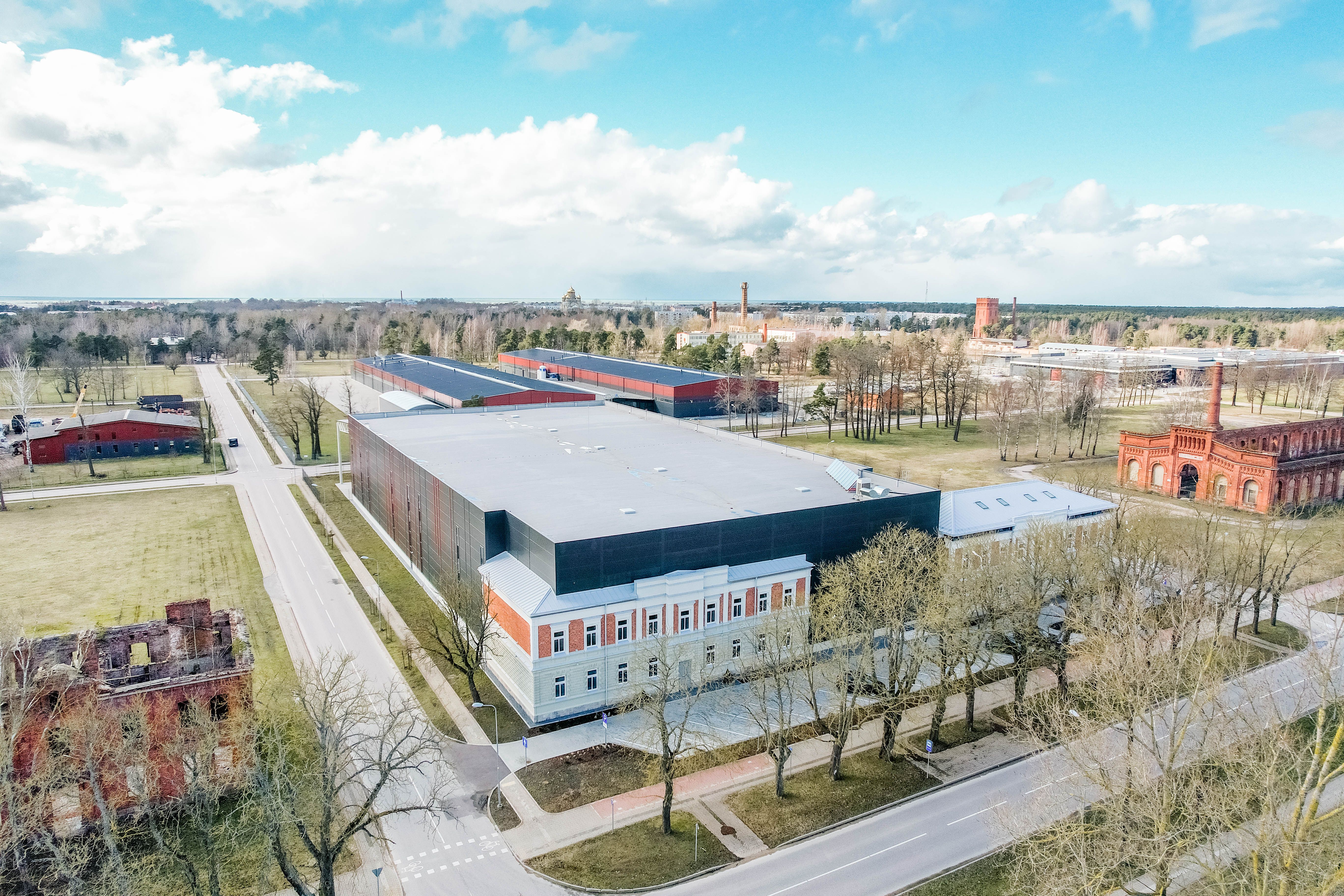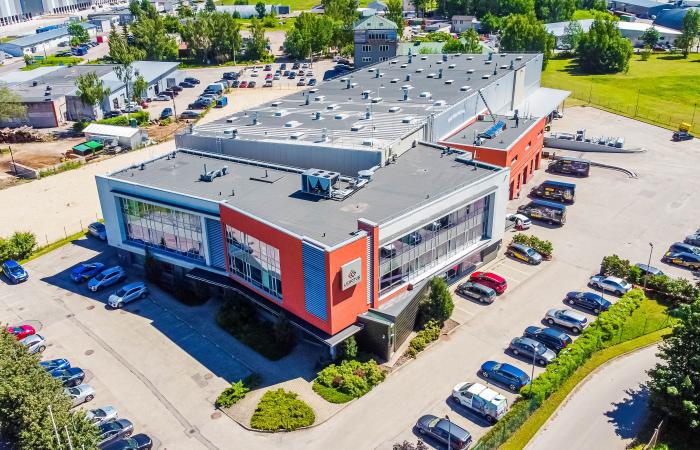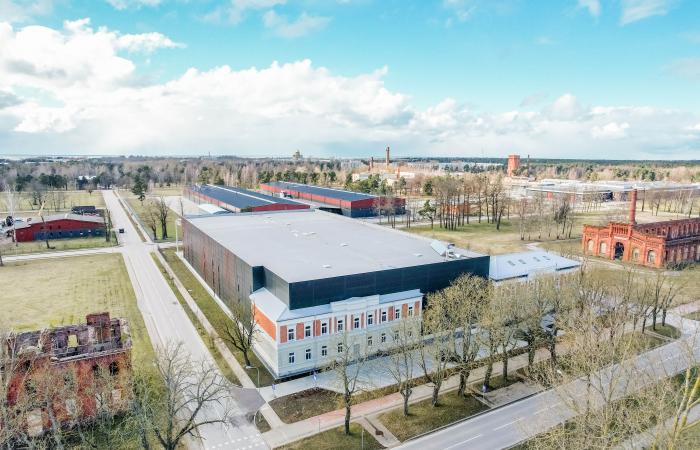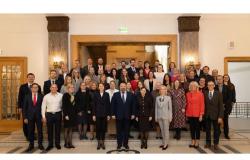In previous years, investors have accumulated quite a lot of capital, as a result of which they now increasingly choose to buy properties without bank loans, says Ivars Gorbunovs, head of the Commercial Department of the real estate agency SIA Kivi Real Estate.
Such a trend was mainly promoted by the EURIBOR increase, as influenced by the significantly increased credit costs, says I. Gorbunovs, emphasizing that the overall market activity is still relatively high. The number and amounts of transactions have decreased, but real estate is still an excellent way not only to preserve and protect your funds against inflation, but also to multiply them, and this is also appreciated by investors, according to I. Gorbunovs. At the same time, the expert does not deny that the interest of large foreign investors in Latvia and the Baltics has decreased in recent years. The market opportunities are used by local Baltic investors, buying properties with their own funds or using a small proportion of bank co-financing, notes the Head of the Commercial Department of SIA Kivi Real Estate, emphasizing that last year Kivi Real Estate concluded 17 commercial property sales transactions and bank co-financing was used for purchases in only three transactions .
In general, how do you assess the real estate market in Latvia – what have been the most significant challenges in recent years?
There was no shortage of challenges, but it must be said that they were different for each player in the industry. At the beginning of the pandemic, we faced trade restrictions, which significantly affected the owners of shopping centers (TC) and other commercial premises. People’s habits of coming to the office also changed, as a result of which the offices were also emptier, which in turn left an impression on the owners of the office buildings. At the same time, other market participants were the beneficiaries, because in addition to that, a rapid rise in real estate prices in the residential segment began, followed by inflation and a wave of cheap money. In general, the rapid rise and then the desire to slow down the real estate market by increasing the EURIBOR rate to 4% shows that the market has now become much more mature. Last year’s forecasts were quite pessimistic, but now we see that the situation is not so bad, one could even say – good. The number of transactions in Riga fell by 6%, in Pieriga by about 12%. The total amount invested is much lower, but the drop in the number of transactions is not so great. It shows that we have become much more mature. If the previous crisis was deep and severe, now it can be said that the situation is quite normal.
You mentioned that some office buildings were empty during the pandemic. Obviously, the situation has changed now – several new office buildings have been built in Riga in recent years and many are still under construction. Will there not be enough tenants for all of them?
Last year, the largest amount of office buildings under construction was reached in the last ten years. About 65 thousand square meters were put into operation, which has been successfully filled up to now. This shows that the demand for new premises has been high, but the question is – how long will it last? Our observations show that all these relocations have mainly been related to the desire of companies to change their old office premises to new ones. In principle, there are few new companies that have just entered the market and want to rent premises. Such a trend was observed in the period from 2012 to 2016, when new companies started working in Latvia, but now the situation has changed. At the moment, these are all mainly relocations, which means that at some point the demand for new offices will fall. For this reason, it is quite safe to predict that the development of such projects will also decrease. Also, the question remains relevant – what will happen to the old office buildings?
It is clear that the Latvian market is as big as it is, and the number of companies that want to rent offices in general is not huge. What do you think will be the fate of old office buildings?
The following years could be challenging for the owners of these buildings, because they will have to make a decision – what to do with these buildings? One option is to reconstruct these houses – to go with the times and modernize the offices in the buildings, but there are also other options. For example, to adapt these properties to the needs of the residential segment. The demand for apartments in the capital is still very high, so this option could also be a good solution. Also, we see that the public sector also increasingly chooses to rent premises in privately owned buildings, which means that a part of these offices could be filled by state and local government institutions. It is likely that the use will arise, but the possibility cannot be ruled out that individual owners will have to decide to sell these buildings as well, especially if the filling of the premises will cause difficulties in fulfilling credit obligations. In general, it must be said that the demand for new premises is still high and the first square meters on the market were absorbed very quickly. In 2023, Kivi Real Estate leased approximately 20 thousand m2 of office space, almost half of which was in new buildings.
You have already touched a little on the increase in interest rates – how did this aspect affect the market – maybe some new trends appeared?
This, of course, puts pressure on prices and affects absolutely everyone. Households that pay loans can accordingly allocate less funds for other purchases, including the purchase of new real estate. This reduces the demand for apartments, as a result of which it is more difficult for developers to sell apartments in already built houses and in the future it forces them to more carefully assess the need to develop new projects. Investors are generally more sluggish in large real estate transactions as well – the number of transactions is lower than in previous years. And this is logical, because in some cases the rental income is not able to cover the loan payment, so it is not economically beneficial. At the same time, there are also positive trends – we can see that quite a lot of capital has been accumulated in previous years, as a result of which investors increasingly choose to buy properties without bank loans. This mostly does not apply to very large transactions, but transactions up to three million euros often take place at the investors’ own expense. Perhaps the owners will refinance these deals after some time when interest rates are lower, but for now they prefer to work with their own funds.
You mentioned an interesting combination of words like cheap money wave earlier. Or has this been the reason why investors have grown interested in investing in real estate, thus protecting their money from falling in value?
Yes, because real estate investment is a wonderful way to preserve money and protect it against inflation. This has proven itself well in previous crises as real estate investments pay dividends every month and once a year owners can review rents without losing money. Therefore, yes – the wave of cheap money has been the reason why the desire of investors to invest in real estate has grown. In addition, we currently see that real estate competes well with other types of investment.
During the pandemic, when the large TCs were closed, the issue of commercial spaces located in individual properties came up. What is the situation now – have these small commercial areas been able to survive even after the pandemic?
Such concepts as pedestrian streets with various shops are very popular in some European cities. Such a concept was also relevant in Latvia at one time, and during the pandemic it even provided significant competitive advantages, but at the moment it could be said that street trade in Latvia is dying. At the same time, the TC develops significantly. In this case, the most difficult moment for TC was during the pandemic, when people were forced to shop online. Many said at the time that this was the future, but now we see that people are returning to brick-and-mortar stores and are happy to shop directly in big stores. Nowadays, TC is no longer just a store, it is an entertainment place with countless cafes, restaurants, movie theaters, gyms and more. In our climate, TC provides various conveniences and customers appreciate them. In general, it must be said that TC has recovered very well after the pandemic, but in the case of Latvia, sales in individual commercial areas are decreasing every year.
What is happening in the industrial segment – have there been any serious deals in this area in recent years?
In the industrial segment, the demand has been quite healthy, basically all the new buildings that have been built have been successfully filled. The demand for modern logistics facilities is high and this sector has also significantly expanded. If physical trade suffered during the pandemic, then internet orders gained unprecedented momentum, which accordingly allowed the logistics field to grow as well. Currently, many logistics buildings in Latvia were built in Soviet times, so modern areas are relevant for business. Modern industrial properties are also among the most sought after among investors in recent years. In 2023, Kivi Real Estate completed several important sales transactions of industrial properties, the total value of transactions exceeding 15 million euros. The main activities in this segment still take place in Riga and Pieriga. Outside of Riga, mostly companies build buildings for themselves, the exception is Liepāja, which has developed very rapidly in recent years. Kivi Real Estate also attracted new investors from the Middle East to Liepāja last year by leasing 6,000 m2 that will develop a vegetable protein production plant in Liepāja. Liepāja is growing, but the construction of industrial buildings in other cities of the region is not yet so active
Why Liepāja?

As they say – where there are two, there are three. First, the city has access to skilled labor. Secondly, there is also a port, which can be conveniently used for transportation if necessary. Respectively – good infrastructure and workforce. Thirdly, Liepāja has historically been chosen by several international companies and active work is currently being done to attract more and more new investors. Currently, we see that there are not enough of these modern buildings in Liepāja, so this also encourages developers – they are ready to build, invest and are sure that there will be a demand for these areas.
How do you generally assess the investment environment in Latvia – what are our advantages and disadvantages?
The main event in recent years in this case has, of course, been the already mentioned increase in interest rates, so there are fewer large transactions. The total mass is formed from relatively small transactions, which are mostly carried out at their own expense. If we talk about foreign investors, we must admit that there are fewer and fewer of them in Latvia. The Baltic market is no longer as attractive as it used to be against the background of the common European market. The returns investors can achieve here have approached the levels they can achieve in other, much broader markets. Poland, for example, has been particularly popular recently. Also Portugal. What we can observe at the moment is that in Latvia and also in the Baltics in general there are very few properties that meet the wishes of foreign investors – modern, large and also affordable. Analyzing the last years’ transactions in the Baltics, it must be concluded that the circle of large investors has stabilized and the overwhelming majority are local investors – Baltic-wide investors, as well as pension funds. Scandinavian investors are also represented, but entrepreneurs from other countries invest slowly in our region, respectively – new investors rarely enter the market.
What are the predictions for this year – can we hope that 2024 will be more active in terms of investments?
I think definitely. Interest rates rose last year, and obviously that created uncertainty. If the situation is unclear, then individual investors, in turn, choose to pause and wait, hoping that prices may fall. Currently, the interest rate has stabilized for some time and the European Bank has promised not to raise this interest rate for a while. I think that this is a purely psychological signal to investors that it won’t get worse. There is at least some clarity, so these are already positive signals to invest. In my opinion, this year will be equal to the previous year – there will probably be few large investment transactions, but the overall market will be active and the number of transactions – similar to last year.








